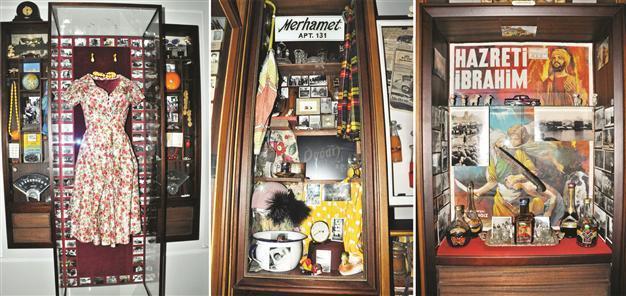Orhan Pamuk issues museum manifesto
ISTANBUL - Hürriyet Daily News

Orhan Pamuk’s ‘Museum of Innocence’ is situated in an old building in Çukurcuma. He started collecting the pieces in the museum before he wrote the novel.
Nobel laureate Orhan Pamuk has issued a “manifesto” to explain and accompany his Museum of Innocence, a visual manifestation of aspects of his novel of the same name, which will open in Istanbul at the end of this month. The manifesto was published in daily Taraf before being released to the international media.Pamuk says he loves museums and has felt very happy in museums in the past. “Because I take museums seriously, I sometimes get angry about them, but I don’t want to speak about museums with anger. There were too few museums in Istanbul in my childhood; most of them were historical structures under protection. Later on, small museums in European cities made me feel that museums could tell the stories of individuals. I never forget that places like the Louvre, the Metropolitan [Museum], Topkapı [Palace], the British Museum and the Prado [hold] great richness for humanity. But I am against the idea that these big monumental treasures should be the models for future museums. Museums should represent humanity… but state-supported museums aim to represent the state, not individuals. This is not a good or an innocent goal,” Pamuk’s manifesto reads.
The Museum of Innocence attempts to represent life in Istanbul between 1950 and 2000, and is filled with artifacts inspired by Füsun, beloved of Kemal, the protagonist of Pamuk’s novel “The Museum of Innocence.”
A few selections from a list of “thoughts” Pamuk attached to his manifesto are below:
“Former palaces and big national museums like the Louvre and the Hermitage, which have become national symbols and are inevitably visited by tourists, attach more importance to the story of the nation than to the story of individuals. But the story of individuals more readily reveals the depths of humanity.”
“We are fed up with museums that attempt to tell the story of a group, a nation, a company, a state and so on. We all know that the ordinary story of individuals is more humanistic and pleasing.”
“Museums should be smaller, more individual and cheaper. This is the only way they can express the stories of individuals. We are called upon to remember the state in big museums. This is why millions of people are afraid of going to museums.”
“The money spent for large, monumental museums should instead be spent on small museums telling the stories of individuals. Funding sources should encourage and support people in turning their small houses into museums.”
















